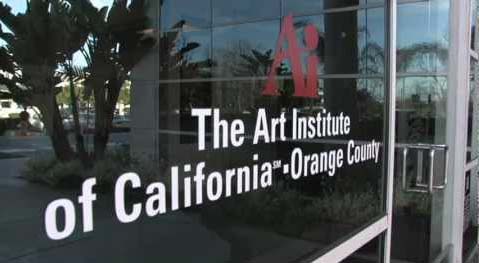

Ed Hooks Explains Why His Popular Acting Book Is No Longer Available To Art Institutes Students

Last weekend we broke the story about Mike Tracy, a veteran teacher at the Art Institute of California–Orange County who is being threatened with termination by the school’s management because he refused to force his students to buy E-textbooks that he felt were unnecessary. Since we published the story, we’ve learned that the E-textbook controversy extends far beyond Mike Tracy’s plight and affects teachers and students at many of The Art Institutes schools.
There are over fifty Art Institutes colleges in the United States, all owned by Education Management Corporation (EDMC). The art school chain has begun the process of switching all its schools to an E-book system called Digital Bookshelf. The switch to E-textbooks has met resistance at multiple schools, including Art Institute of Philadelphia. That school’s Faculty Federation complained about EDMC’s E-textbook policy a few months ago:
“EDMC continues to insist on e-books only and wants sole discretion over what e-books are used, compromising faculty independence and expertise in choosing best resources for class.”
To understand how EDMC’s “Digital Bookshelf” works, here’s a downloadable PDF explaining the system for their online courses. In this case, the Art Institute online program charges a “digital resource fee” of between $50-$75 for each class. In return, students receive a temporary copy of an e-textbook. In many cases, printed versions of the books can be purchased for a lower price, but according to the school, “If you choose to purchase a printed copy of a textbook that is available through Digital Bookshelf, you will be responsible for both the Digital Resource Fee and the cost of the textbook.”
That means every student enrolled at the Art Institutes is required to use EDMC’s Digital Bookshelf system. Not only that, but the Digital Bookshelf system isn’t open to every publisher, but only to those publishers who have signed a deal with EDMC’s E-book technology vendor, Vital Source. That means Art Institute students have to buy all their E-books from a single book distributor.
In the case of teacher Mike Tracy, he was being forced to choose a random E-textbook that he felt was unnecessary for his students. But there’s a flipside to the story. Sometimes a teacher at one of the Art Institute schools may want to use a particular E-textbook, but they can’t because it hasn’t been acquired by EDMC’s vendor, VitalSource.
Ed Hooks, author of the popular animation textbook Acting for Animators, explained to Cartoon Brew how his book is no longer available to Art Institutes students, even though his book is widely available in both print AND as an E-textbook, and is highly demanded by Art Institutes teachers:
My book Acting for Animators was published late last year in a revised third edition by Routledge/London. Â Not too long after it came out, I received an e-mail from an Art Institute animation teacher in Texas. Â He told me that the headquarter of the AI schools, located in Pittsburgh, had established a new textbook policy. Â From then going forward, all text books must be e-books. Â No more hard or soft cover. He was worried that my book might not be available in e-book format, explaining that it was one he recommended to all of his AI students. Â
As it happened, Routledge was at that moment in between E-Book distributors. Â They were in the process of vetting a new one and expected to announce E-Book available for all of their titles shortly. Â I passed this positive message along to the teacher in Texas.
A few weeks later, I received an e-mail from an Art Institute Project Manager in Pittsburgh. He wanted my publisher Routledge to hurry up with that E-book availability because the time was near when textbook titles would have to be set in concrete for AI’s schools. Â If E-Books were not available, AI would no longer be able to recommend or use “Acting for Animators”, I forwarded his e-mail to my editor, which instigated a trans-atlantic back-and-forth e-mail conversation, with the Art Institute representative specifying the particular KIND of e-book format he wanted. Â He wanted Routledge to contract with VitalSource and even gave my editor a personal contact at VitalSource. Â
Mind you, every single e-mail from the man in Pittsburgh mentioned the large number of potential sales we would be forfeiting if we did not do the E-Book thing according to AI’s blueprint. Â
In the end, Routledge went with some other e-book distributor, and the man in Pittsburgh said he was sorry but that was that. It was out of his hands. Â No more Acting for Animators book at any of the Art Institutes. Â
My editor in London is a decent man and he felt personally terrible that he and Routledge had just cost one of its authors many thousands of book sales. Â I told him not to worry about it because serious students would sooner or later find “Acting for Animators” on their own.
As an author myself, I would never allow any publisher to sell a book I wrote to EDMC’s “Digital Bookshelf.” The set-up sounds like it benefits neither myself nor my publishers. But the biggest losers in this scenario appear to be the students who attend Art Institutes schools. According to Mike Tracy, they are being forced to purchase books deemed unnecessary by their teachers, and now, as Ed Hooks points out, they are being denied books that the school’s teachers feel are needed.
